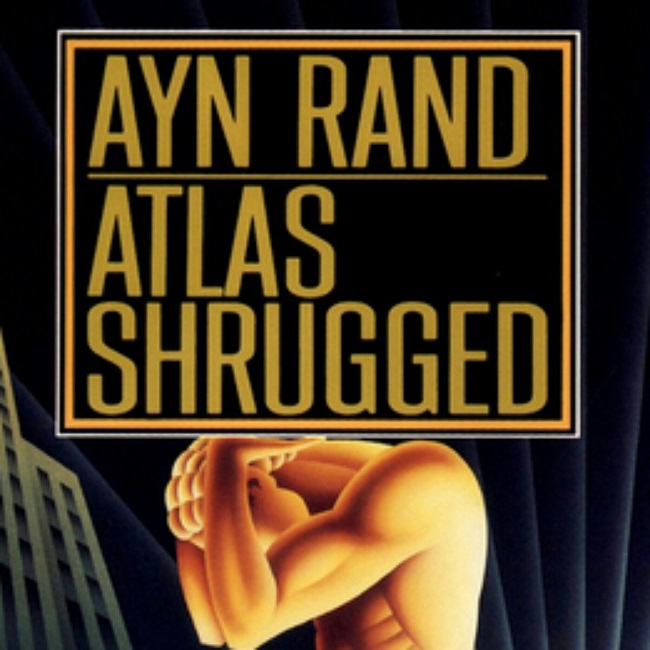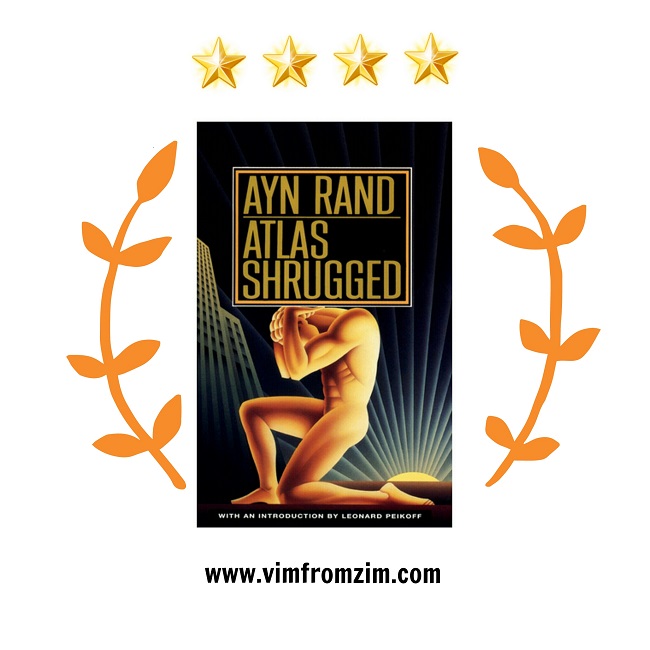“She was twelve years old when she told Eddie Willers
that she would run the railroad when they grew up.
She was fifteen when it occurred to her for the first time
that women did not run railroads and that people might object.
To hell with that, she thought—and never worried about it again.”
~ About Dagny Taggert
It’s not everyday I go out of my way to purchase AND read a book because Mr Tall-Dark-And-Handsome whom I met at some random party claimed it was his favourite book and insisted I should read it. But here we are.
Listen, I’m highly aware that this kind of literary venture could have gone very badly:
- It could have been a serious dud of a book, thus shattering all ill-placed-and-overly-exaggerated virtues I may have bestowed upon Mr Tall-Dark-And-Handsome;
- Reading said book could make me come across as a smidgen too eager *shrug*; and
- I would never be able to reclaim the many, many hours it took to get through the 1168 (!!!) pages that make up this book.
Thankfully, none of that happened. Read on and find out why.
“Dagny, there’s nothing of any importance in life
– except how well you do your work.
Nothing.
Only that.
Whatever else you are, will come from that.
It’s the only measure of human value…
The code of competence is the only system of morality
that’s on the gold standard.”
~ Said by Francisco D’Anconica
For full disclosure purposes, my main motivation to read this book was to glean what kind of character I was dealing with in Mr Tall-Dark-And-Handsome. In literary circles, reading and judging one’s favourite reads is basically the Hogwarts equivalent of dealing with The Sorting Hat. Everyone is rooting for you to be a Gryffindor when you could just as easily be a Hufflepuff *womp womp*.
What you’ll be interested to know is that about 30 pages in I forget all about my nefarious intentions and surprisingly got caught up in the story-line. Despite all the dubious reviews it had received on Good Reads, what I found was an engaging book that eloquently articulated some timeless views around money, women in power, wealth creation, ownership and the role of government in business. Very impressive for a book published in 1957.
Dagny’s rise among the men
who operated Taggart Transcontinental
was swift and uncontested.
She took positions of responsibility because
there was no one else to take them…
At every step of her rise,
she did the work long before she was granted the title.
I won’t lie, trying to condense this mammoth book into a palatable and succinct review is giving me a mild case of hives. So let me start with what I really liked about the book.
The first thing that shot out at me was the strong, sure-footed character of the female protagonist, Dagny Taggart. It seems to me that it wasn’t Ayn Rand’s (the author) intention to endear Dagny to the readers for the typical female traits that society dictates befit a woman, such as feminine softness, charm and amicability. Nope, instead you find that what endears you to her is a capable manner, consistency of character, a strong sense of ownership and her straight talking ways. All the traits usually attributed to men in lofty leadership positions.
The story is set in the 1950’s, against the backdrop of an industrial crisis in which innovation is frowned upon, government is known to meddle within the affairs of business and organisations are looking to make a profit for their efforts in a tough working environment. To make matters worse, the founders and owners of huge conglomerates and businesses are resigning at short notice and then disappearing off the face of the earth, bringing a sense of doom and panic in an already uncertain financial landscape.
Despite the bleak outlook, Dagny Taggert is determined to not only survive but thrive in this economic mess, and you found yourself rooting for this 30-something mogul to overcome all odds.
Another reason why I really enjoyed the book is that it helped articulate some views I have around money and wealth creation through another prominent character, Hank Rearden. He’s a self-made man, a steel tycoon who is very involved and proud about his vocation. His family, however, are not proud of his achievements. In fact they, feel the very opposite of proud although they benefit from the lifestyle and peace of mind that Hank’s money affords them.
In Hank, you find a rational and focused man who is not afraid to admit that his primary concern in business is to make a profit get ridiculed and mocked by the very individuals who profit directly from the success of his business. Man, there were scenes with is family that mad me hissin’ mad.
Over and over again through the course of the book it is discussed how “vulgar” it is to talk about the desire to make a profit from one’s business, when in fact when it comes down to it that is what most (if not all) business owners’s primary concern is. Instead, what is encouraged is to downplay one’s monetary aspirations in business and instead highlight the more philanthropic endeavours that one’s business will benefit society and mankind at large. I really enjoyed parts of the book when Dagny and Hank would be quick to interject that despite unpopular opinion, their focus was to make a profit – public opinion be damned!
In many literary forums I noticed many individuals shame this book for its money-focus leanings, whereas I found myself applauding it for just that. As my father loves to drill into me and siblings, if you aren’t taking care of the “bottom line” in business or your chosen pursuit, it doesn’t matter what other great benefits stem from that activity, you have kind of missed the whole point.
Which then brings me to the third key character, Francisco D’Anconica, who is a former childhood friend of Dagny (amongst many other things). He delivers the following brutally accurate assessment of money and misplaced attitudes held towards it at a dinner party – much to the horror of his audience:
“So you think that money is the root of all evil?
Have you ever asked what is the root of money?
Money is a tool of exchange, which can’t exist unless there are goods produced and men able to produce them.
Money is the material shape of the principle that men who wish to deal with one another must deal by trade and give value for value.
“Money will not purchase happiness for the man
who has no concept of what he wants;
money will not give him a code of values,
if he’s evaded the knowledge of what to value,
and it will not provide him with a purpose,
if he’s evaded the choice of what to seek.
Money will not buy intelligence for the fool,
or admiration for the coward,
or respect for the incompetent.”
~ Said by Francisco D’Anconica
Listen, there is so much more to share, glean and learn from this book that I’ve scheduled a re-read sometime in late 2017, because I’m pretty sure I missed some awesome stuff due to the insane plot twists and turns to the story (not to mention the long windedness of the narration). So chickens, you will just have to read all 1168 pages of it yourself to find out how it all goes. However, as I am a generous soul, I’ve taken the liberty to summarise below a short list of key themes and ideas I took away from the book:
- Governments influence in matters of business should be limited;
- Ownership and accountability should be the cornerstones of any business person’s value system;
- Bureaucracy can bring any thriving business to its knees;
- The creation of any product or service, is in itself an act of love; and
- Sometimes easy-on-the-eye gentlemen have very good taste in books.
Who should read it?
Those among you who are looking for a little inspiration and hope during these shady economic times of plummeting stocks, market crashes and questionable currency fluctuations – and don’t mind all that being woven in a web of mystery, romance and suspense. Oh and those that have a lot of reading time to spare, to power through it all, lol.
My Rating: 4 chickens out of 5 (yes, chickens)
Let me know in the comments if you have read this book or anything written by Ayn Rand, and how you found it/them?
V x



👍👍
LikeLike